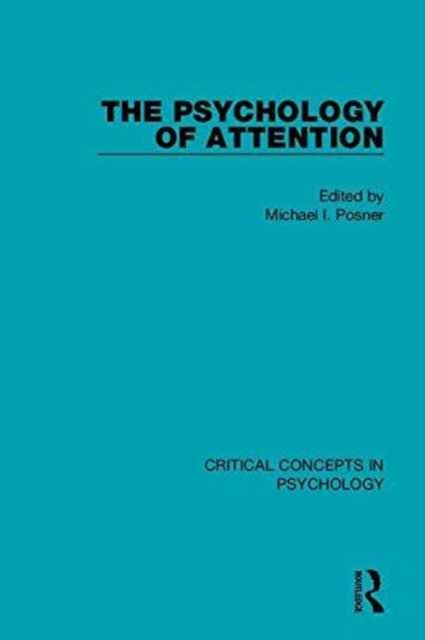
The Psychology of Attention Mixed media product
Edited by Michael I Posner
Part of the Critical Concepts in Psychology series
Mixed media product
Description
Attention has long been recognized as a central topic in human psychology. And, in an increasingly 'connected' world, understanding our attentional networks-in particular, their role in the selection of information, the maintenance of alertness and self-control, and the management of emotions-is, arguably, more important than ever. As research in and around the psychology of attention continues to flourish, this new four-volume collection from Routledge meets the need for an authoritative reference work to make sense of a complex body of research.
The materials gathered in Volume I include explorations of the limits of attention and early empirical work on methods to probe brain activity.
The major works collected in the second volume examine critical theories that allow computer programs to simulate and predict how attention operates, while Volume III is organized around the use of brain imaging, cellular recording, and optogenetics to delineate how the brain carries out the functions of attention.
The final volume connects studies of attention to applications, including: connectivity to electronic media; brain-based educational curricula, the economics of decision making, and psychopathologies. With a full index, together with a comprehensive introduction, newly written by the editor, which places the collected material in its historical and intellectual context, The Psychology of Attention is an essential work of reference.
The collection will be particularly useful as a database allowing scattered and often fugitive material to be easily located.
It will also be welcomed as a crucial tool permitting rapid access to less familiar-and sometimes overlooked-texts.
For researchers and advanced students, it is a vital one-stop research and instructional resource.
Information
-
Available to Order - This title is available to order, with delivery expected within 2 weeks
- Format:Mixed media product
- Pages:2266 pages, 614 Illustrations, black and white
- Publisher:Taylor & Francis Ltd
- Publication Date:28/11/2016
- Category:
- ISBN:9781138848320
Information
-
Available to Order - This title is available to order, with delivery expected within 2 weeks
- Format:Mixed media product
- Pages:2266 pages, 614 Illustrations, black and white
- Publisher:Taylor & Francis Ltd
- Publication Date:28/11/2016
- Category:
- ISBN:9781138848320










